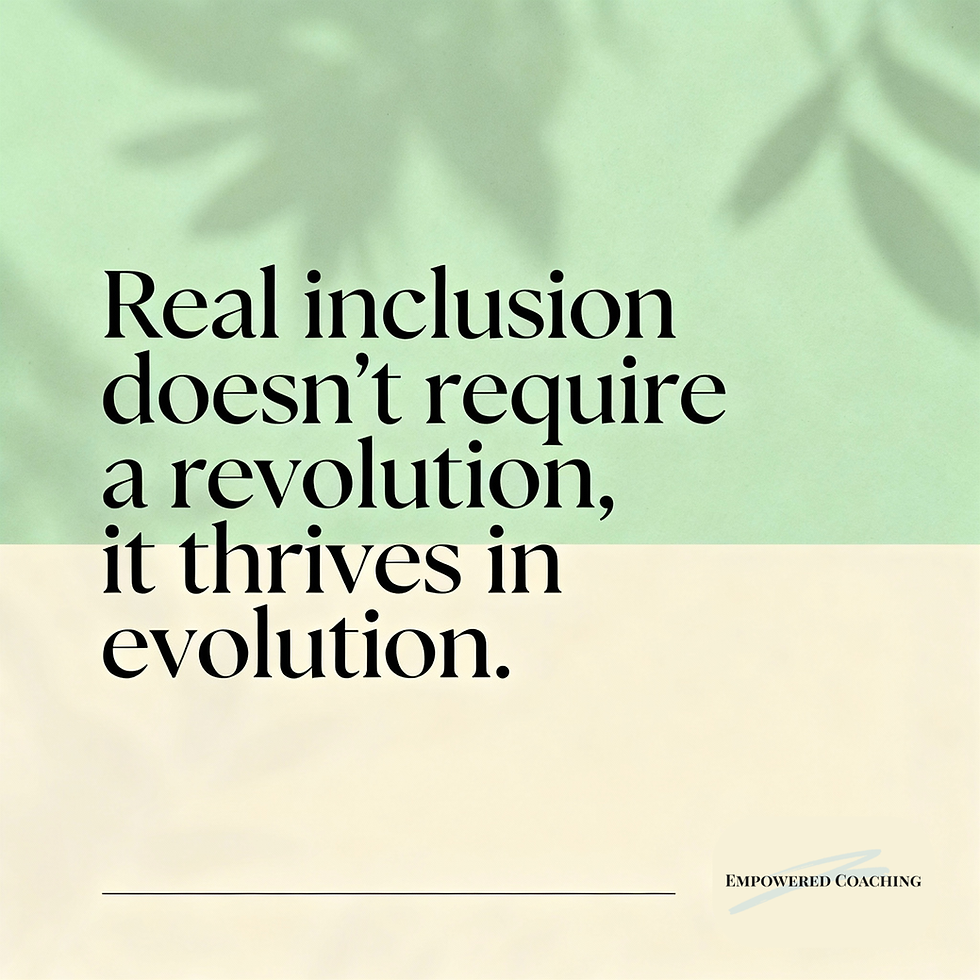The Grief Cycle After an ADHD Diagnosis: A Journey to Self-Acceptance
- emma83168
- Nov 1, 2024
- 3 min read
Updated: Nov 27, 2024
For many, receiving an ADHD diagnosis is a major turning point that can bring a mix of emotions, from clarity and relief to an unexpected sense of loss. This new understanding of oneself can be deeply transformative, yet it often comes with a process of looking back on past struggles, misunderstandings, and missed opportunities. Like any life-altering experience, it can lead us through a journey similar to the traditional grief cycle. These stages aren’t always linear; emotions may return or shift as new insights emerge.
Here’s a look at what this grief cycle might feel like for someone coming to terms with an ADHD diagnosis:
1. Denial
Common Thoughts/Feelings:
“This diagnosis can’t be right.”
“Maybe I don’t actually have ADHD.”
In the early stages, denial is common. People often question the diagnosis, whether due to stereotypes about ADHD or simply because they’re not yet familiar with how it can affect different people. Some try to rationalise their past difficulties as being down to stress, personality quirks, or situations that they believed they could control. It’s a way of holding onto a familiar self-image—one where struggles felt temporary, not part of an ongoing challenge that might need support.
2. Anger
Common Thoughts/Feelings:
“Why didn’t anyone notice earlier?”
“I’ve missed out on so much because of this.”
“Why do I have to deal with this?”
Anger often follows as people begin to reflect on missed opportunities and misunderstandings, sometimes feeling frustrated with systems, family, or friends who didn’t understand their struggles. There’s often resentment toward the support systems that overlooked their needs or towards themselves for not seeing the signs sooner. This anger can be a difficult but important stage, helping to release years of unspoken frustration or disappointment.
3. Bargaining
Common Thoughts/Feelings:
“Maybe I can just ignore it and go back to how things were.”
“If only I could focus better, everything would be fine.”
At this stage, individuals often try to find ways around fully accepting their diagnosis. They might set ambitious goals or think they can push through without making any real changes. It’s a bit of a negotiation with oneself, hoping that a few small adjustments will be enough. Bargaining reflects a desire to control the situation without needing to accept the diagnosis as part of who they are.
Sadness/Depression
Common Thoughts/Feelings:
“I don’t know who I am anymore.”
“It feels like I’ve missed out on so much.”
“Why didn’t I get the help I needed sooner?”
A stage of sadness often comes with recognising the years spent feeling different or misunderstood. It can feel like grieving for a version of oneself that could have been, or mourning for the potential that may feel unrealised. For many, there’s also a deep sadness about not receiving help sooner, reflecting on the moments that could have been easier with the right support.
5. Acceptance
Common Thoughts/Feelings:
“I have ADHD, but it doesn’t define me.”
“Now I understand why things were difficult, and I can use that knowledge to move forward.”
“I can find ways to work with my brain rather than against it.”
Acceptance is a powerful stage, bringing a sense of self-compassion and empowerment. Here, individuals begin to embrace their diagnosis as part of who they are. Rather than fighting or minimising their ADHD, they start to see it as part of what makes them unique. This stage doesn’t mean the journey is over, but it’s a step towards focusing on strengths and understanding needs.
For many people, especially those who’ve faced years of feeling “different” without knowing why, this process of grief can be profound. Recognising it as a journey can empower individuals to not only come to terms with their ADHD but to embrace it as a part of their identity. Understanding oneself in this way can pave the way for a more authentic, fulfilling life.
Emma Redman



Comments